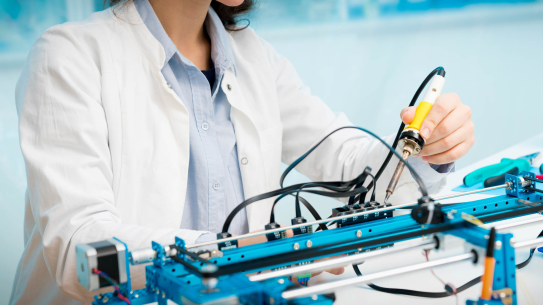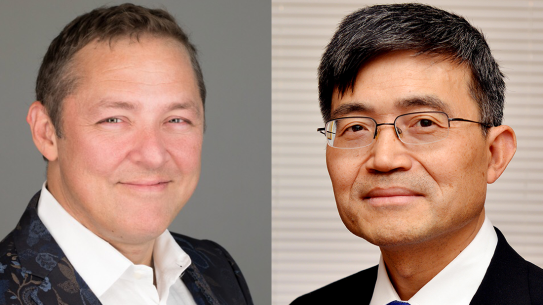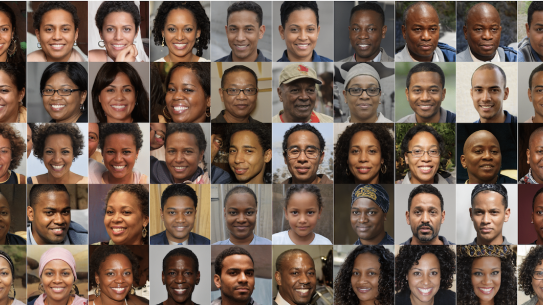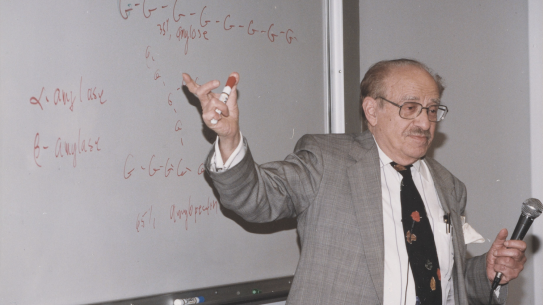With the help of NSF I-Corps, NYU Tandon faculty members and graduate students are taking their research to where it can do the most good
Like many NYU Tandon students, Srushti Katore and Prithvinath Reddy Garigapuram had the goal of using their tech skills and engineering education to help improve the world. Even more importantly, they had what they believed was a viable idea: with the World Health Organization listing stroke as one of the leading causes of long-term disability, what if there were a way for clinicians to preemptively identify and manage patients at high risk, such as those who had already suffered a stroke in the past?
They collaborated to develop a cloud-based application that leverages data in order to noninvasively do just that. Cara Systems, as they called their enterprise, developed a noninvasive SaaS triage tool for intracranial aneurysms and stroke that provides clinicians with data-driven insights on patient-specific diagnoses, in order to enhance clinical decision-making and treatment outcomes.
But the best idea in the world wouldn’t be of much use if it remained in a Tandon Lab. Even enlisting the help of clinicians at NYU Langone would not ensure that the system made it into the hands of a significant segment of medical practitioners out there on the front lines of patient care.
With the help of Industry Professor Iskender Sahin, who served as the team’s Technical Lead; Professor Emeritus Kurt Becker, as entrepreneurial advisor; Vadim Gordin, as industry mentor; and Dr. Albert Favate, a neurologist and stroke specialist from NYU Langone as the clinical collaborator, they set a goal of taking part in an impactful National Science Foundation (NSF) program known as I-Corps.
What is I-Corps?
Bench-to-bedside has become something of a buzz phrase in medical circles in recent years. The term refers to translational research — in other words, research that moves (or “translates”) quickly from the lab bench to bedside.
It’s a worthy goal in medicine, as Cara Systems shows, but is also a useful concept in any sector: findings made during the course of academic research can not only make patients healthier but cities more liveable, manufacturing more sustainable, and cyber systems more secure, to name just a few of the possibilities.
In 2012, recognizing that many of the transformative technologies developed thanks to grants from the NSF weren’t actually making it to the marketplace, where they could benefit society, the Foundation launched NSF I-Corps (pronounced "eye-core"), a seven-week program aimed at helping researchers become entrepreneurs.
Since its inception, I-Corps has helped almost 1,400 research teams to launch startups, which have cumulatively raised more than $3 billion in subsequent funding.
How it works
Researchers who hope to be admitted to I-Corps form teams consisting of, at minimum, a technical lead, an entrepreneurial lead, and an industry mentor. Teams then pitch the NSF on their technology and its potential commercial uses. If accepted, they receive a $50,000 grant and seven weeks of hands-on training in Lean Startup Methodology, a system that has long been popular in Silicon Valley and that calls for an intense early period of customer discovery.
At NYU, however, the process doesn’t start there. I-Corps is the middle step in a three-step process that begins with enrolling in a Tech Venture Workshop overseen by the University’s Entrepreneurial Institute and its executive director, Frank Rimalovski. During the workshop, faculty members and their Ph.D. students or postdocs who have conducted research with commercial potential are invited to test out their premises and learn about intellectual property, patents, market segments and other foundational topics.
Only after they’re deemed ready — with a potentially viable product and a rudimentary understanding of what it takes to launch a business — are they encouraged to apply to I-Corps. Even teams not advanced enough for that big leap benefit greatly from the workshop, however, with most saying it changed their way of thinking, gave them practical ideas for honing their research, and strengthened their resolve to pursue their work.

Wael Itani, for example, a Ph.D. candidate supervised by Dean Emeritus Katepalli Sreenivasan, a renowned physicist, is working on a project called QALB, which aims to develop quantum software able to quickly and accurately simulate fluid flows. The work is not theoretical, he explains, but rather computational. If the project turns out as he plans, it would be a building block to accelerating such simulations by orders of magnitude (for example, to validate the designs of airplane components in mere hours rather than days, or even weeks). One major roadblock: the needed hardware is still under development, “We are developing the software in parallel as major players in the industry are building the hardware,” he says. Attending the workshop, however, has made Itani more determined than ever to create the first such software for the market. Searching for early adopters in the market has a sizable effect on the development effort, down to the assumptions made for the software’s use cases. He now has a headstart in knowing what markets to target when the time is right to apply to I-Corps. “In addition to the commercial potential, we’ll be advancing fundamental scientific understanding,” he says. “Right now there are things we haven’t discovered about flows around soccer balls, let alone airplanes.”
Similarly, Senior research assistant Jingqin Gao, who works as Assistant Director of Research at Tandon’s C2SMARTER University Transportation Center (formally C2SMART), which is funded by the U.S. Department of Transportation, was able to plan a path forward after attending a recent Tech Venture Workshop. In 2020, collaborating with C2SMART Director and Professor Kaan Ozbay, Gao had explored the idea of using crowdsourced traffic cameras to 6detect pedestrian density and social distancing patterns during the COVID pandemic; inspired by that work, they later turned to developing a deep learning-based data acquisition and analytics tool, called A-Eye Urban, that uses cameras to automatically recognize work zones in crowded and complex urban environments and visualize traffic hazards. Reasoning that such information might be useful not just to public agencies but to commercial entities, she aimed to learn more about topics like pursuing licensing or knowledge transfers, the patent process, customer discovery, and raising capital. “One day we’ll be ready to apply to I-Corps,” she says, “and in the meantime I gained so much knowledge; I’ve become a go-to person at C2SMARTER when researchers first start thinking of the commercial potential of their work.”
Making it in
Once admitted to I-Corps, aspiring entrepreneurs receive $50,000 from the NSF. Katore and Garigapuram have used that funding to dive into customer discovery and have a pilot program in place by this summer; the ultimate goal, if all goes well with NYU’s Institutional Review Board, is to go to market by 2026. “We believe Cara Systems is going to push the boundaries of diagnostic efficiency and precision,” they say, “and it’s very satisfying to know your work is poised to make an impact; that’s every researcher’s dream.”
Professor André Taylor and his team, who are part of the latest I-Corps cohort, certainly share that dream. (I-Corps cohorts consist of about 24 carefully chosen teams, which are attached to one of the program’s regional hubs; NYU is part of the New York Region Hub led by CUNY.) Taylor works in the sphere of energy conversion and storage, developing innovative fuel cells, solar cells, and batteries, and his newest project is still in stealth mode. “While I can’t talk about it much right now,” he says, “I can say that we’re exceptionally excited to be in the program, and have already conducted more than 100 customer discovery interviews within the first four weeks with three more weeks remaining.”
Rimalovski and his colleagues at the Entrepreneurial Institute have helped at least 16 NYU projects gain admission to I-Corps cohorts, and many of those have been based at Tandon, including:
- CAR-T Chips, microfluidic “organ on a chip” systems that aim to help clinicians better treat cancer (PI Weiqiang Chen)
- TAP Diagnostics, a rapid point-of-care test for viruses (PI Jin Kim Montclare)
- Heliotrope, a film coating able to boost the efficiency of solar cells (PI Eray Aydil)
Next steps
Once a team has completed the I-Corps curriculum, it’s eligible for the third step in the Entrepreneurial Institute’s offerings: the Tech Venture Accelerator, an initiative launched this past year thanks to funding from alumnus and trustee Mark Leslie and his wife, Debra.
Participating teams receive an additional $50,000 in milestone-based funding, mentorship, and other resources needed to get their startups off the ground. The inaugural accelerator featured a team comprising Bilal Sher (Tandon ‘22), Talha Javed (Tandon ‘23), Sruti Madhusudhan (Tandon ‘23), and Professor Chen Feng, who designed an AI-enabled robotic building-inspection system; and Vital Audio, a software platform that extracts clinical biomarkers from patients' speech through conventional phone lines founded by Nyamitse-Calvin Mahinda (Tandon '24), Harsh Sonthalia (Tandon '23), and Divya Mehta (Stern '23).
“The robotic building-inspection system has already gone on to receive a $1 million NSF Civic Innovation Challenge Phase II grant, and Vital Audio won NYU’s Entrepreneurs Challenge and participated in the highly selective TechStars LA accelerator program,” Rimalovski says. “We’re obviously excited to follow their progress, as well as to see what teams make it into our second cohort. As more and more academic researchers explore the incredible practical applications of their work and pivot to use-driven investigations, the better the chance that their technology will fill a pressing market need and make a real-world difference.”






